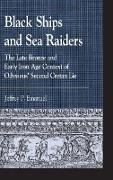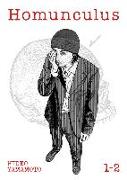- Start
- Black Ships and Sea Raiders
Black Ships and Sea Raiders
Angebote / Angebote:
The Late Bronze Age ended with a bang in the Aegean and Eastern Mediterranean: palaces and empires collapsed, from Greece to Egypt, coastal territories were beset by pirates and marauders, migratory peoples were on the move across land and sea, and geopolitical lines were permanently redrawn - conditions reflected, in many ways, by the world portrayed in Homer's Odyssey. The notorious 'Sea Peoples, ' mysterious groups of warriors who were credited by the pharaoh Ramesses III with destroying empires across the Near East at this time, fit into this puzzle in some way, although their exact role continues to be hotly debated. In the Odyssey's various subplots, Odysseus himself carries out activities that are that highly reminiscent of the Sea Peoples, as he engages in raids and skirmishes while circuitously making his way back from Troy. Though it is presented as a falsehood within Homer's master narrative, one such subplot, the "Second Cretan Lie" (Odyssey xiv 191-359) is striking in its similarity to the experience of one specific Sea Peoples group, whom Egyptian pharaohs referred to as the "Sherden of the Sea, " and whose seaborne attacks they claimed that "none could withstand." This book marshals documentary, pictorial, and material evidence to examine Odysseus' Second Cretan Lie in the context of the Late Bronze-Iron Age transition, with particular emphasis on changes in the iconography of warriors and warfare, social and economic upheaval, and remarkable innovation in maritime technology and tactics. Particular focus is given the hero's description of his frequent raiding activities, including an ill-fated attempt on the Nile Delta, and on his description of seven subsequent years spent in the land of the pharaohs, during which he claims to have gathered great wealth. Setting the evidence for the Sherden of the Sea against this Homeric narrative demonstrates not only that Odysseus' Second Cretan Lie fits into the temporal framework of the Late Bronze-Early Iron Age transition, but that there were historical people who actually lived that which Odysseus falsely claims as his own experience.
Folgt in ca. 15 Arbeitstagen




